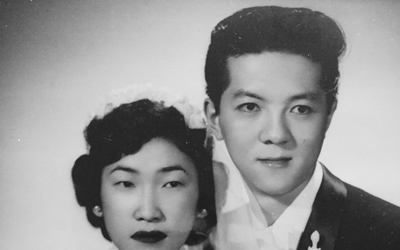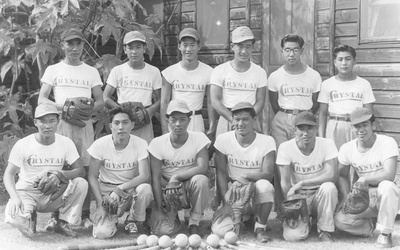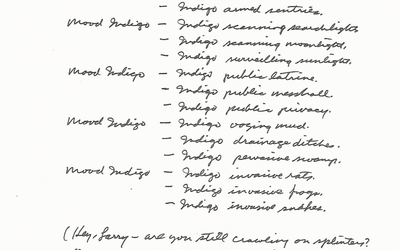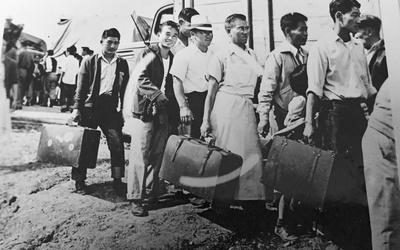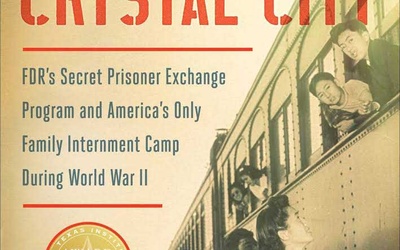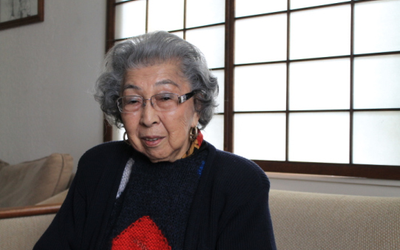Tessaku
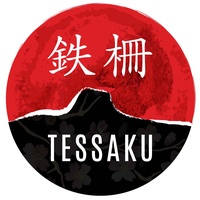
Tessaku was the name of a short-lived magazine published at the Tule Lake concentration camp during World War II. It also means “barbed wire.” This series brings to light stories of the Japanese American internment, illuminating those that haven’t been told with intimate and honest conversation. Tessaku brings the consequences of racial hysteria to the foreground, as we enter into a cultural and political era where lessons of the past must be remembered.
Stories from this series
Art & Betty Shibayama - Part 2
April 26, 2017 • Emiko Tsuchida
Read Part 1 >> What city did you grow up in? Betty Shibayama (BS): It was a town, Hood River. It was about 50 miles east of Portland, along the Columbia River. Beautiful country there. It’s like, what they say, like red neck country. [laughs] Well, they wanted to get rid of the Japanese, right. But our neighbors–I only found this out recently from one of my brothers–when the evacuation notice came out, our neighbor who maybe lived a mile …
Art & Betty Shibayama - Part 1
April 25, 2017 • Emiko Tsuchida
In my case, they denied my citizenship because I didn’t have legal entry. Now, the government brought us here forcibly, on a U.S. army transport, put us in a justice department camp that was administered by the immigration. So, where’s the place where it says I’m illegal? -- Art Shibayama Art Shibayama’s childhood was idyllic. His summers were spent swimming off the coast of Callao, where his loving grandparents essentially raised him. Back in Lima, his father ran a successful …
Larry Nobori - Part 2
April 6, 2017 • Emiko Tsuchida
Read Part 1 >> What does the band play specifically? Mainly swing, Glen Miller type stuff. Then I was asked to direct this youth band in Portland and it was called the Minidoka Swing Band. We went up to Minidoka, presented the band, that’s part of it. Then the band kept on going after this pilgrimage because we wanted to bring young people up to Minidoka to show them what that was, you know, Japanese, Asian youth. So then it …
Larry Nobori - Part 1
April 5, 2017 • Emiko Tsuchida
If you ever wanted to get a sense of what life actually felt like in camp, look no further than this contraband film from the Nobori family, shot inside Jerome, Arkansas. This 8 mm “day in the life” was filmed by the father, George and leaves a time capsule so perfectly preserved for those of us who want to go beyond still pictures. The family’s candid footage reveals lightheartedness in a sober situation. It shows people making the best of their days …
Nancy Yamamoto - Part 2
March 15, 2017 • Emiko Tsuchida
Read Part 1 >> So those were hard times. Once I was home for a girls’ meeting and I was intending to take the train back to San Francisco on Monday morning. They wouldn’t allow me to get on the train, they wouldn’t sell me a ticket. I think I can still picture him. I said, ‘Why not?’ He said, ‘Your country started a war against us.'” And I said that’s not my country. I said I’m an American born, …
Nancy Yamamoto - Part 1
March 14, 2017 • Emiko Tsuchida
Once I was home for a girls’ meeting and I was intending to take the train back to San Francisco on Monday morning. They wouldn’t allow me to get on the train, they wouldn’t sell me a ticket. I think I can still picture him. I said, “Why not?” He said, “Your country started a war against us.” -- Nancy Yamamoto A longtime member of the Oakland Buddhist Church’s Momijikai, a young Nancy Yamamoto had aspirations to become a fashion …

